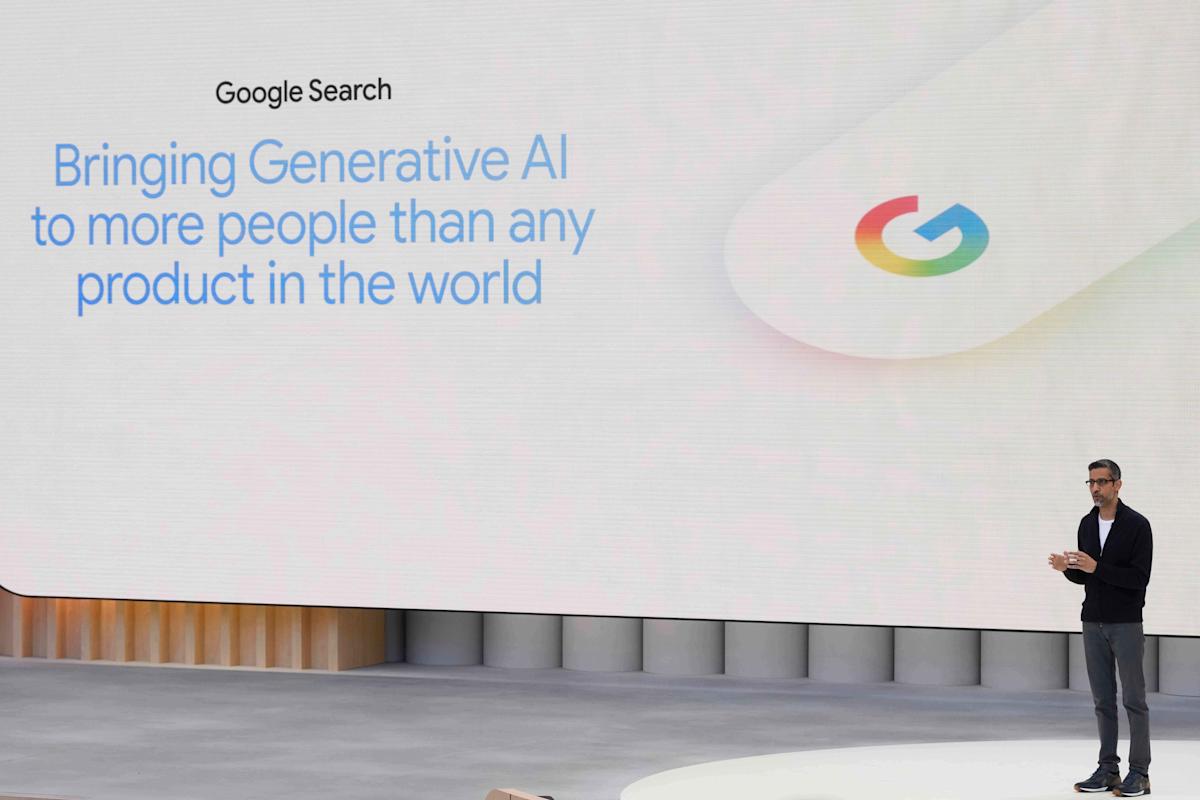Google unveils Gemini’s next generation, aiming to turn its search engine into a ‘thought partner’
SAN FRANCISCO (AP) — Google is unleashing its Gemini 3 artificial intelligence model on its dominant search engine and other popular online services in the high-stakes battle to create technology that people can trust to enlighten them and manage tedious tasks.
The next-generation model unveiled Tuesday comes nearly two years after Google took the wraps off its first iteration of the technology. Google designed Gemini in response to a competitive threat posed by OpenAI‘s ChatGPT that came out in late 2022, triggering the biggest technological shift since Apple released the iPhone in 2007.
Google’s latest AI features initially will be rolled out to Gemini Pro and Ultra subscribers in the United States before coming to a wider, global audience. Gemini 3’s advances include a new AI “thinking” feature within Google’s search engine that company executives believe will become an indispensable tool that will help make people more productive and creative.
“We like to think this will help anyone bring any idea to life,” Koray Kavukcuoglu, a Google executive overseeing Gemini’s technology, told reporters.
As AI models have become increasingly sophisticated, the advances have raised worries that the technology is more prone to behave in ways that jumble people’s feelings and thoughts while feeding them misleading information and fawning flattery. In some of the most egregious interactions, AI chatbots have faced accusations of becoming suicide coaches for emotionally vulnerable teenagers.
The various problems have spurred a flurry of negligence lawsuits against the makers of AI chatbots, although none have targeted Gemini yet.
Google executives believe they have built in guardrails that will prevent Gemini 3 from hallucinating or be deployed for sinister purposes such as hacking into websites and computing devices.
Gemini 3 ‘s responses are designed to be “smart, concise and direct, trading cliche and flatter for insight — telling you what you need to hear, not just what you want to hear. It acts as a true thought partner,” Kavukcuoglu and Demis Hassabis, CEO of Google’s DeepMind division, wrote in a blog post.
Besides providing consumers with more AI tools, Gemini 3 is also likely to be scrutinized as a barometer that investors may use to get a better sense about whether the massive torrent of spending on the technology will pay off.
After starting the year expecting to spend $75 billion, Google’s corporate parent Alphabet recently raised its capital expenditure budget from $91 billion to $93 billion, with most of the money earmarked for AI. Other Big Tech powerhouses such as Microsoft, Amazon and Facebook parent Meta Platforms are spending nearly as much — or even more — on their AI initiatives this year.



Leave a Comment
Your email address will not be published. Required fields are marked *